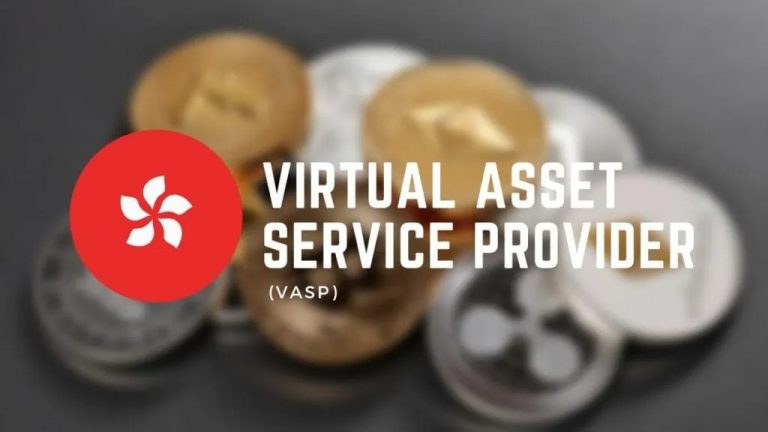What are the different ways to accept crypto donations?
There are many different ways to accept crypto donations depending on your organization’s needs. For options 2, 3 and 4 below, your organization will take custody of the crypto. So it will be essential to set gift acceptance policies and handle compliance with IRS regulations and accounting practices. Gift acceptance policies for cryptocurrency are similar to in-kind gifts of property, but you may have specific policies regarding specific coins you deem more “risky.” If holding onto crypto, you should also set policies around when to liquidate.
Use an intermediary 501(c)(3)
to minimize legal, accounting, and administrative burdens. Your nonprofit can accept crypto support through another 501(c)(3), such as a donor-advised fund (DAF), without taking custody of cryptocurrency. This allows you to receive cash grants without new accounting or tax filing requirements. Usually, all 501(c)(3) public charities are automatically eligible with little to no onboarding other than confirmation of their status. The intermediary is responsible for sending tax receipts, filing IRS Forms 8282, converting to cash, and following evolving regulations and practices around cryptocurrency.
While donating crypto through DAFs like Fidelity Charitable is only available to account-holders, nonprofits can work with nonprofit donation platforms that don`t charge any fees, such as Every.org. The best part about such intermediaries is that they specialize in dealing with the accounting process and other regulations imposed by local governments.
Use crypto payment processor
Of course, if you don’t want to work with a 501 (c)(3), there are other types of crypto payment management providers such as:
Specialized crypto donation processor
Use a crypto donation processor to receive crypto directly. Your nonprofit can go through specialized payment processors to accept donations into your own crypto wallets while automating receipts and conversion to cash. This allows you to hold onto cryptocurrency as an investment if you wish (though it’s not typically advised).
Service fees vary depending on the provider, but providers may also assist with developing marketing campaigns and strategies specific to the crypto community.
Standard crypto to fiat processor
This type of crypto payment gateway is already well-known among e-commerce merchants, but you can also implement them in your charity work. However, it is salient to know that these processors are not especially made for enabling donations and can therefore not be fit for your organization’s needs.
Use an embeddable checkout experience through a crypto exchange
For minimal fees, crypto exchanges offer checkout experiences that nonprofits can embed into their websites. Like the above options, they have a built-out donation experience with automatic conversion to cash. While typically cheaper than specialized crypto donation processors, the checkout experience is not created with nonprofits and donations in mind. Therefore, your organization will need to fill in with donor support, tax receipt creation, and collection of donor information.
Use your own crypto wallets
This will allow you to receive donations without any intermediary. This is the most technical and “DIY” of all options. Given the other methods, your organization should only consider this, if you have technical staff who can weigh the different wallet options and keep track of transactions. You should also create a flow to collect donor information, as transactions are typically anonymous on the blockchain. Importantly, you should create policies around accessing the wallet, such as securely storing credentials like the seed phrase.
Our opinion
Every charity-related organization differs from the others based not only on the cause they support but also on the number of people involved, the spent years of work and overall recognition in the media. That’s why each nonprofit needs a crypto payment solution that will suit their needs. If you’re confident in dealing with crypto without an intermediary, then give it a try, but the moment you experience the slightest struggle it’s best to incorporate an intermediary. Also, if you receive regular donations from the same business or individual, you may want to implement payment channels to reduce transaction time and fees. Read more on What are payment channels.
Legal Considerations
Before jumping on the crypto bandwagon it’s beyond essential to make sure that you’re aware of all lawful regulations, regarding crypto donations, imposed by the government of the country you operate in and also the legislative institutions in the countries where your benefactors reside. Accounting processes should also be performed by respective professionals, who are familiar with cryptocurrencies.
Important to know!
Cryptocurrency is NOT an actual currency!
Here’s an important fact to know – cryptocurrency may be legal, but it’s not a regular currency, i.e. legal tender, at least not in the eyes of the IRS. Digital currencies are actually considered property. The rules around donations of Bitcoin, Ethereum, XRP, etc., whichever one you’re talking about, are the same as if you were donating a box of used clothing to Goodwill. It’s considered an in-kind gift, not a gift of cash, or cash-equivalent security, like stocks or bonds.
Examples of organizations that are already accepting crypto donations
From environmental organizations to charities supporting the homeless, an increasing number of nonprofits are accepting cryptocurrency donations. Below you can find some of the most notable examples of organizations that have embraced cryptocurrency donations and the impact that these donations have had on their causes.
1. UNICEF CryptoFund
In 2019, UNICEF became the first UN organization to receive, hold, and redistribute cryptocurrency.
Since then, the UNICEF CryptoFund has received a good amount of BTC and ETH, investing in startups in developing and emerging countries. For example, the UNICEF CryptoFund invested 25 ETH in an emergency response platform in Kenya, nearly 20 ETH in an AI and blockchain-powered startup in Argentina, and nearly 12 ETH in digital financial services for refugees in Rwanda.
Cryptocurrencies accepted: Bitcoin and Ethereum
2. Rainforest Foundation
Rainforest Foundation US helps secure land rights for Indigenous peoples. This specific organization strengthens indigenous land security and teaches communities about the use of technology to protect their forests.
Cryptocurrencies accepted: Bitcoin, Bitcoin Cash, Ether, and Litecoin
3. The Water Project
The Water Project, a 501(c)(3) nonprofit organization, unlocks human potential by supporting reliable water projects for communities in sub-Saharan Africa. The project aims to help those who suffer daily due to the lack of clean water and proper sanitation.
Cryptocurrencies accepted: Bitcoin, Bitcoin Cash, Ether, Litecoin and USDC donations (via Coinbase Commerce)
FAQ
- Should you instantly sell your crypto donations or HODL?
This is entirely dependent on your investment strategy, the current state of the market and the type of crypto coins, which are being accepted. Therefore, it’s recommended to come in contact with a financial advisor, who will help you navigate your plan of action.
- What coins should I accept for donations?
Opting for the most popular crypto coins like BTC, ETH and other stable coins is always good, but there are many newcomers such as the meme coins, which have been a lot in the spotlight,too. That’s why it’s advised to seek legal or financial advice from a respected professional. We also have a great guide on How to accept ETH as payment – you may want to check it as well!


























+ There are no comments
Add yours